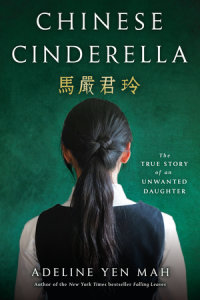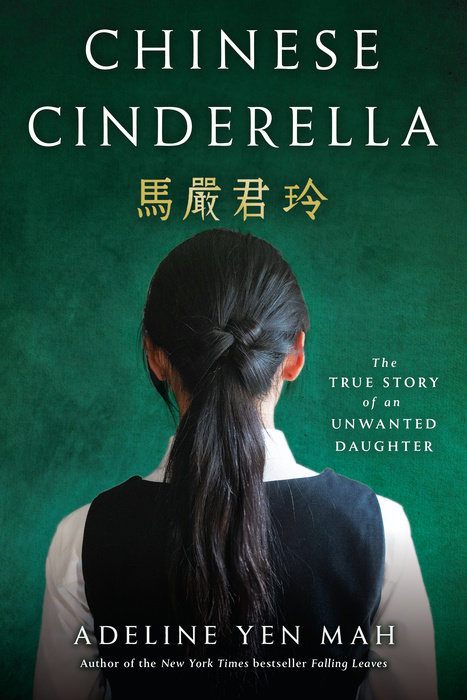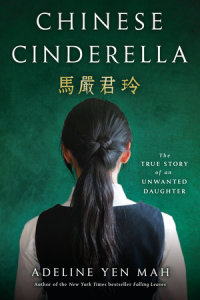Top of the Class
AUTUMN 1941
As soon as I got home from school, Aunt Baba noticed the silver medal dangling from the left breast pocket of my uniform. She was combing her hair in front of the mirror in our room when I rushed in and plopped my schoolbag down onto my bed.
"What's that hanging on your dress?"
"It's something special that Mother Agnes gave me in front of the whole class this afternoon. She called it an award."
My aunt looked thrilled. "So soon? You only started kindergarten a week ago. What is it for?"
"It's for leading my class this week. When Mother Agnes pinned it on my dress, she said I could wear it for seven days. Here, this certificate goes with it." I opened my schoolbag and handed her an envelope as I climbed onto her lap.
She opened the envelope and took out the certificate. "Why, it's all written in French or English or some other foreign language. How do you expect me to read this, my precious little treasure?" I knew she was…
Top of the Class
AUTUMN 1941
As soon as I got home from school, Aunt Baba noticed the silver medal dangling from the left breast pocket of my uniform. She was combing her hair in front of the mirror in our room when I rushed in and plopped my schoolbag down onto my bed.
"What's that hanging on your dress?"
"It's something special that Mother Agnes gave me in front of the whole class this afternoon. She called it an award."
My aunt looked thrilled. "So soon? You only started kindergarten a week ago. What is it for?"
"It's for leading my class this week. When Mother Agnes pinned it on my dress, she said I could wear it for seven days. Here, this certificate goes with it." I opened my schoolbag and handed her an envelope as I climbed onto her lap.
She opened the envelope and took out the certificate. "Why, it's all written in French or English or some other foreign language. How do you expect me to read this, my precious little treasure?" I knew she was pleased because she was smiling as she hugged me. "One day soon," she continued, "you'll be able to translate all this into Chinese for me. Until then, we'll just write today's date on the envelope and put it away somewhere safe. Go close the door properly and put on the latch so no one will come in."
I watched her open her closet door and take out her safe-deposit box. She took the key from a gold chain around her neck and placed my certificate underneath her jade bracelet, pearl necklace and diamond watch, as if my award were also some precious jewel impossible to replace.
As she closed the lid, an old photograph fell out. I picked up the faded picture and saw a solemn young man and woman, both dressed in old-fashioned Chinese robes. The man looked rather familiar.
"Is this a picture of my father and dead mama?" I asked.
"No. This is the wedding picture of your grandparents. Your Ye Ye was twenty-six and your Nai Nai was only fifteen." She quickly took the photo from me and locked it into her box.
"Do you have a picture of my dead mama?"
She avoided my eyes. "No. But I have wedding pictures of your father and your stepmother, Niang. You were only one year old when they married. Do you want to see them?"
"No. I've seen those before. I just want to see one of my own mama. Do I look like her?" Aunt Baba did not reply, but busied herself with putting the safe-deposit box back into her closet. After a while I said, "When did my mama die?"
"Your mother came down with a high fever three days after you were born. She died when you were two weeks old. . . ." She hesitated for a moment, then exclaimed suddenly, "How dirty your hands are! Have you been playing in that sandbox at school again? Go wash them at once! Then come back and do your homework!"
I did as I was told. Though I was only four years old, I understood I should not ask Aunt Baba too many questions about my dead mama. Big Sister once told me, "Aunt Baba and Mama used to be best friends. A long time ago, they worked together in a bank in Shanghai owned by our grandaunt, the youngest sister of Grandfather Ye Ye. But then Mama died giving birth to you. If you had not been born, Mama would still be alive. She died because of you. You are bad luck."
A Tianjin Family
At the time of my birth, Big Sister was six and a half years old. My three brothers were five, four and three. They blamed me for causing Mama's death and never forgave me.
A year later, Father remarried. Our stepmother, whom we called Niang, was a seventeen-year-old Eurasian beauty fourteen years his junior. Father always introduced her to his friends as his French wife, though she was actually half French and half Chinese. Besides Chinese, she also spoke French and English. She was almost as tall as Father, stood very straight and dressed only in French clothes, many of which came from Paris. Her thick, wavy black hair never had a curl out of place. Her large, dark brown eyes were fringed with long, thick lashes. She wore heavy makeup, expensive French perfume and many diamonds and pearls. Grandmother Nai Nai told us to call her Niang, Chinese term for mother.
One year after their wedding, they had a son (Fourth Brother), followed by a daughter (Little Sister). There were now seven of us, five children from Father's first wife and two from our stepmother Niang.
Besides Father and Niang, we lived with our Grandfather Ye Ye, Grandmother Nai Nai and Aunt Baba in a big house in the French concession of Tianjin, a port city on the northeast coast of China. Aunt Baba was the older sister of our father. Because she was meek, shy and unmarried and had no money of her own, they ordered her to take care of me. From an early age, I slept in a crib in her room. This suited me well because I grew to know her better and better. Besides a room, we came to share a life apart from the rest of our family. Under the circumstances, perhaps it was inevitable that, in time, we came to care for each other very deeply.
Many years before, China had lost a war, known as the Opium War, against England and France. As a result, many coastal cities in China, such as Tianjin and Shanghai, came to be occupied by foreign soldiers.
The conquerors parceled out the best areas of these treaty ports for themselves, claiming them as their own "territories" or "concessions." Tianjin's French concession was like a little piece of Paris transplanted into the center of this big Chinese city. Our house was built in the French style and looked as if it had been lifted from a tree-shaded avenue near the Eiffel Tower. Surrounded by a charming garden, it had porches, balconies, bow windows, awnings and a slanting tile roof. Across the street was St. Louis Catholic Boys' School, where the teachers were French missionaries.
In December 1941, when the Japanese bombed Pearl Harbor, the United States became involved in the Second World War. Though Tianjin was occupied by the Japanese, the French concession was still being governed by French officials. French policemen strutted about looking important and barking out orders in their own language, which they expected everyone to understand and obey.
At my school, Mother Agnes taught us the alphabet and how to count in French. Many of the streets around our house were named after dead French heroes or Catholic saints. When translated into Chinese, these street names became so complicated that Ye Ye and Nai Nai often had trouble remembering them. Bilingual store signs were common, but the most exclusive shops painted their signs only in French. Nai Nai told us this was the foreigners' way of announcing that no Chinese were allowed there except for maids in charge of white children.


